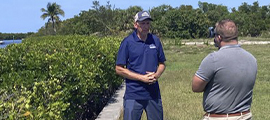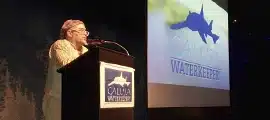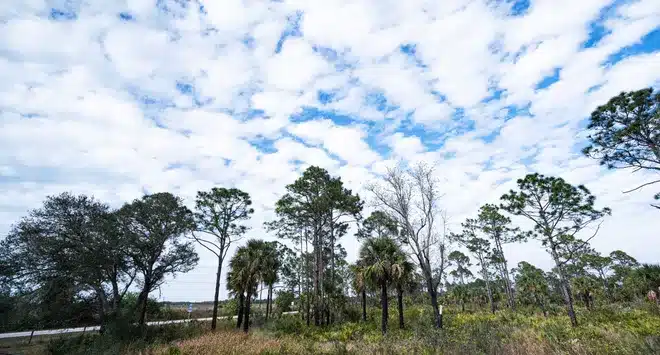Originally published in the News-Press on April 13, 2025
Conservation organizations stand united in stating our highest level of concern regarding the Kingston development
By Audubon Florida, Audubon Western Everglades, Big Waters Land Trust, Calusa Waterkeeper, Center for Biological Diversity, Conservancy of Southwest Florida, Earthjustice, Florida Wildlife Federation, Responsible Growth Management Coalition, Sanibel-Captiva Conservation Foundation, South Florida Wildlands Association
Our respective organizations stand united in stating our highest level of concern regarding the Kingston development proposed in the Greater Western Everglades. This 10,000-home project is close to having the authorizations and permits needed to begin construction, despite how harmful this residential and commercial development would be for the last bastion of rural lands in eastern Lee County.
Because of the enormous project size and negative implications for listed species and water resources, including on regionally significant private and public trust conservation lands, we urge the U.S. Army Corps to complete an Environmental Impact Statement under National Environmental Policy Act (NEPA) procedures before making any decision on this Clean Water Act Section 404 permit application.
Kingston neighbors the Corkscrew Regional Ecosystem Watershed public lands and is upstream of Audubon’s Corkscrew Swamp Sanctuary, where visitors from around the world marvel at the swamp’s ancient trees and abundant wildlife. The Sanctuary is not only an important part of the Everglades but also a wetland of importance in its own right, recognized internationally as the largest remaining stand of virgin, old-growth bald cypress in the world. Our organizations are concerned about how the 6,700-acre Kingston project could potentially harm these environmentally sensitive conservation lands and the integrity of wetland habitat ecosystems they’re in place to protect.
Further, Kingston is located within the Florida Wildlife Corridor, a science-based conservation initiative to provide connectivity for wildlife throughout the state of Florida. The project site contains essential habitats for a number of endangered and threatened species like the crested caracara, Florida bonneted bat and Florida panther. The Kingston development will have significant negative impacts on the survival and recovery of the Florida panther because it will destroy, degrade and fragment habitat. The project will also increase traffic in the panther’s last occupied territory, resulting in increased deaths from vehicle collisions. Car crashes are already the number one documented cause of mortality for panthers, and we can only expect that threat to worsen with more cars on the roads.
Despite much of the Kingston property being agricultural in nature, the now fallow citrus groves provide habitat to wildlife and buffer our cherished conservation lands from indirect impacts of development. It falls within the Lee County Density Reduction Groundwater Resource area, which was established ostensibly to protect animal habitat, wetland flow ways, agriculture and drinking water recharge and supply areas.
Thousands of citizens have written to decision-makers sharing concerns and objections to the project. We have provided substantial rationale for why an Environmental Impact Statement under the National Environmental Policy Act is not only warranted, but necessary, before a significant permitting decision should be made.
Watersheds and habitat are lost development by development – where they are allowed and how they are designed matters. Many of Florida’s iconic rural and wild landscapes have already been lost to exurban sprawl, making what remains all the more precious. The Florida Wildlife Corridor and state’s Florida Forever Plan are two good conservation roadmaps — Kingston as proposed would conflict with both.
We are unified in our call that the Kingston development is not within the public interest. We again urge the Army Corps of Engineers to fully study this project before deciding whether to issue a permit which would forever change the landscape of Southwest Florida. That study should be an Environmental Impact Statement under NEPA procedures. If you agree, please contact the Army Corps to ask for this Environmental Impact Statement on such a large project: Col. Brandon Bowman, Commander; Jacksonville District, U.S. Army Corps of Engineers; c/o Michael Ornella II, Project Manager via email at Michael.Ornella@usace.army.mil.

























